Christopher Korber, an art student from Puerto Rico, always thought the island’s drag scene needed more drag kings, but he never thought he would actually become one. However, in 2016, the 27-year-old found his home at House De Show Puerto Rico.
House De Show consists of a group of alternative drag performers that are becoming a strong voice in Puerto Rico’s LGBTQ community. This is where Korber’s drag personality, Chris Griandher, took shape. Griandher began as a sleazy male character who constantly hits on women, with the purpose of caricaturing aspects of masculinity. With time, Griandher evolved into a “dark king,” a character derived from vintage gore movies — a “ghoul king” that wears chains and channels malignant forces from the underworld.
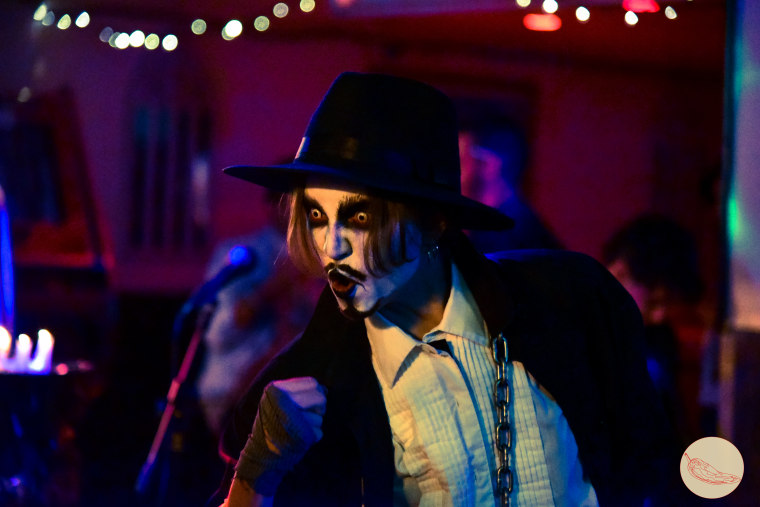
“It’s like anything can go. Since there wasn't a consistent platform of drag king culture established in Puerto Rico at the moment, what others and I express is becoming part of the construct of what drag king culture is in Puerto Rico,” Korber said.
House De Show Puerto Rico emerged in the summer of 2016 as a monthly queer party at Club 77, a rock venue near the University of Puerto Rico in Río Piedras. Jhoni Jackson, a freelance music journalist and Georgia native who moved to Puerto Rico five years ago, was a co-owner of the club in charge of booking acts.
The Thursday queer party that eventually became House De Show was her baby, she said. With time, the event gained fame for featuring nontraditional performers — drag kings, fluid kings and others who specialize in defying people’s ideas of gender.
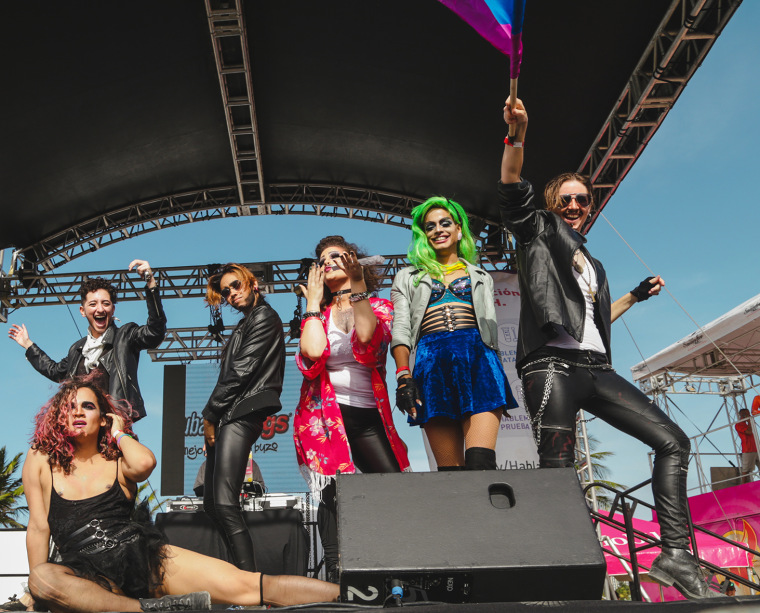
The performers from House De Show became nomads when they left Club 77 in 2016, after Jackson, the organizer and “mom of the show,” decided to relinquish her share of Club 77’s ownership. Jackson, however, kept organizing House De Show’s monthly drag party. The crew would perform in different venues, mostly at El Escondite, a tiki bar across from Club 77.
Eventually, Jackson and the House De Show performers started seeing the need for their own space. Jackson recalled when the group performed at a local venue after a karaoke night. The crowd was rowdy. Some of the patrons were making fun of the performers.
Related: The Joy and Sadness of 'Drag Race' Winner Sasha Velour
“That’s why it’s so important to have a dedicated queer space, because if I’m the owner of the space, I can control that,“ Jackson said. “If somebody is giving somebody a hard time discriminating against them, I can kick them out.”
The need for an alternative queer space for House De Show led to a new endeavor. Jackson has been hosting events to help raise funds for Loverbar, a queer nightclub that will open this fall in Río Piedras. Loverbar, like House De Show, strives to be a hub for all forms of queer expression. The venue will only book queer artists, Jackson stressed.
“There’s a reason to reserve a space for queer people,” she said. “If we don’t make designated spaces for people, they get left behind.”
Jackson will be the owner of the club and she and House De Show performers will be in charge of programming. The goal is to create a safe space that is completely queer-run and will provide job opportunities for Puerto Rico’s LGBTQ community.
But even drag, a product of queer culture, is held down by mainstream norms. Since gay men are often seen as the icons of drag performance, other kinds of drag performers are often overlooked or poorly understood. Korber recalls the time when he participated as a drag king at a competition at a local gay club in San Juan. The drag queen hosting the show absentmindedly misgendered Korber, a transgender man, by calling him “chica” — Spanish for “girl.” Korber sees this incident as a product of unintended ignorance.
“They are just unaware of other spaces that are developing out there.” he said.
Meanwhile, popular shows, like "RuPaul’s Drag Race," are embracing a new wave of drag performers and redefining the culture, opening the door for a more inclusive drag culture. Sasha Velour, winner of the ninth season of "Drag Race," leads the way.
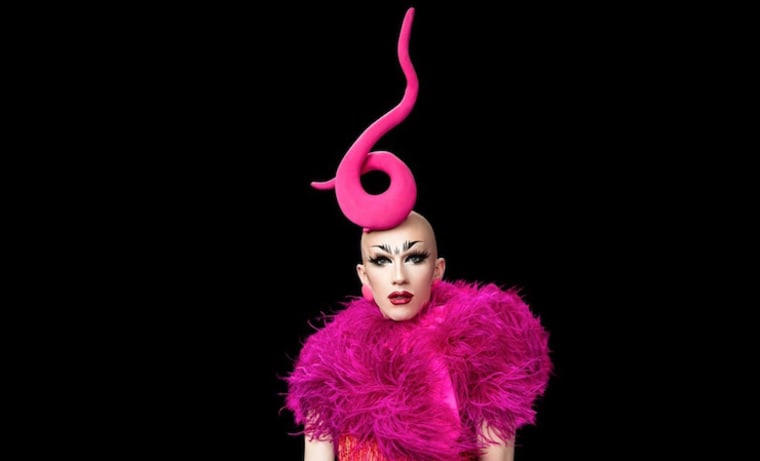
"Drag is so much more than gay men dressing up as women. It's about creating space and creating validity for people who want to express gender differently and by their own rules,” Velour said in an interview withNPR’s Here and Now. “Drag, according to Velour’s vision, is any performance that destroys the idea of gender as a fixed human quality.
Zylia Zoé Ramírez, another performer from House De Show, started as a drag king but quickly realized she actually wanted to be a “meta drag queen” — a gay man inside the body of a woman trying to be a drag queen. Her character, Nomi Latoken, constantly oscillates between masculine and feminine.
To understand Nomi, one has to understand the story behind this fictional character, according to Ramírez. After falling in love with a gay man, Nomi decided to undergo sex reassignment surgery. The doctors, however, realized Nomi was pretending to be a transgender patient and stopped the operation midway, leaving Nomi with only half of a crucial body part.
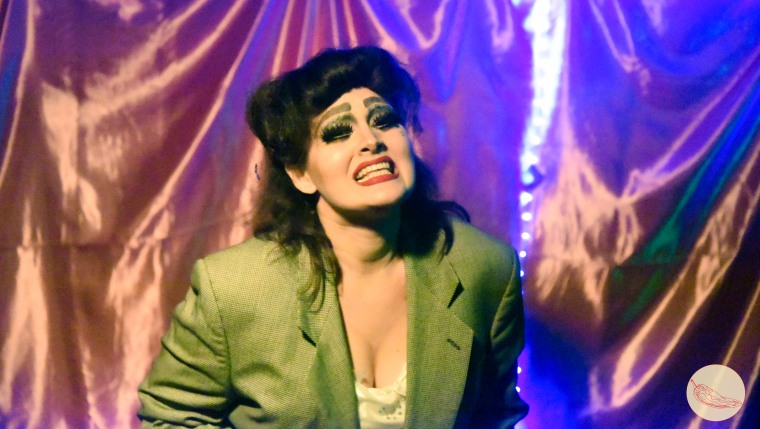
“Nomi is like a self-made female hermaphrodite,” Ramírez said. “She has her womanly figure but also half a penis.”
Nomi performs in men’s white briefs but also wears a push-up bra. She dons fiercely feminine makeup, including painted-on facial hair.
“My experiences with De Show helped me identify my own gender identity,” Ramírez said. “It has been the best for me. It has given so much power and has taught me to not be afraid.”
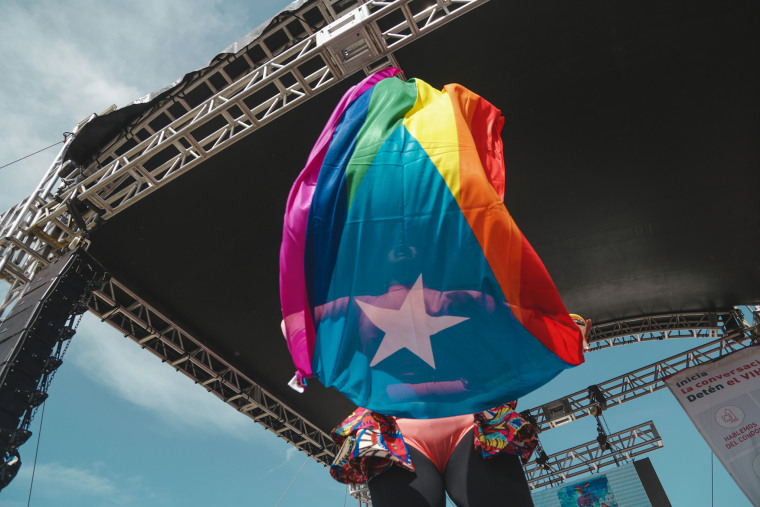
Puerto Rico’s current administration is headed by the pro-statehood party, a longtime adherent of social conservatism. In February, Puerto Rico Governor Ricardo Roselló issued an executive order to eliminate gender studies classes from all Puerto Rican schools. Cecilia La Luz, director of a local LGBTQ community center and member of the governor’s new LGBTQ advisory board, said Governor Rosello’s decision to eliminate gender studies from schools was a decision prompted by “a commitment” he made with religious groups.
In addition to Puerto Rico's social conservatism, another challenge facing the island's drag scene — and the opening of Loverbar — is the economy: The unemployment rate is about 12 percent, and it is currently facing a debt crisis. Puerto Rico's average income in 2015 was $18,626, roughly a third of the United States’ median household income, which was$55,775 that same year. Affording to Jackson, nightlife is not a priority for many Puerto Ricans — especially when wages are not enough to afford the island’s rising cost of living.
The island's bleak economy is also a challenge for drag performers, especially for young people like Korber, who also studies full-time and works as a model and teacher's assistant. Each month, Korber has to find a way to afford rent and costume expenses for his next show. Despite the challenges, however, he said it's worth it to perform.
"I've come to understand that it's all about sacrifice when one is presenting something that is fresh,” Korber said. “I’ve also had a lot personal growth. I’m having fun. It’s pure passion, even though it might be hard to sustain. I believe that it is a space that should exist.”